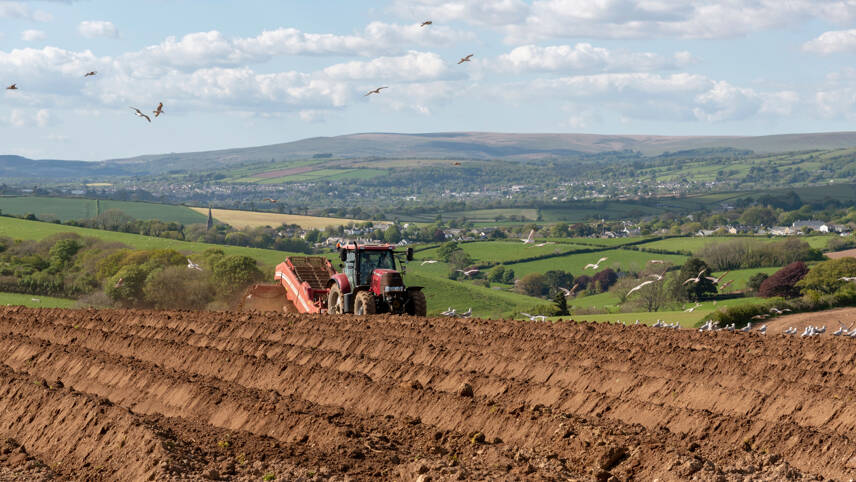Register for free and continue reading
Join our growing army of changemakers and get unlimited access to our premium content

Ocado is partnering with the Soil Association charity to demonstrate sustainable agricultural practices at five different UK farms. Each farm will focus on different areas – ranging from dairy cows, beef and sheep to orchard fruit and potatoes.
Training sessions will be held at the farms and for other farmers on agroforestry practices that combine trees and livestock to offer protection from extreme weather, restoring hedgerows and reducing pesticides and using diverse crop rotations to boost soil health.
Ocado Retail’s chief executive Hannah Gibson said: “Supporting local farmers and promoting homegrown produce is something we care deeply about at Ocado. Earlier this year, we launched a Best of British aisle on-site to make it easier for our customers to shop for food that’s farmed and produced in the UK.
“Our new partnership with the Soil Association reinforces our commitment and, by working with farmers who are pioneering agroecological farming practices, we’re increasing the quality, freshness and sustainability of the food we’re able to offer our customers.”
Research from the Green Finance Institute found that climate-friendly farming could be crucial to the resiliency of the UK economy. It found that deterioration of the natural environment could lead to an estimated 12% loss to GDP.
The work forms part of a wider partnership between Ocado and the Soil Association. The two organisations will also work on a “Farm to Fork Ambassadors programme” to provide stories and successes about healthy and sustainable food.
Regeneration revolution
The announcement from Ocado comes just days after Waitrose unveiled an ambition to help more than 2,000 of its supplier farmers in the UK adopt regenerative farming practices, through the provision of practical and financial support.
Elsewhere, Unilever launched its first UK regenerative agriculture programme, aiming to boost low-carbon fertiliser use biodiversity and cover and companion crops while increasing yields for mustard seed and mint leaf growers.
Last year, research conducted by FAIRR revealed that the absence of a universally accepted definition for ‘regenerative agriculture‘ and a lack of consensus on the specific objectives that companies aim to achieve through it, poses significant challenges to the food and beverage industry.
A host of the world’s biggest agri-companies launched a new framework in the hopes of unleashing trillions of dollars in support of regenerative farming practices.
The Sustainable Markets Initiative’s Agribusiness Task Force framework aims to render regenerative farming financially viable and scalable, laying the groundwork for implementation projects in key regions including India, the UK and the US. Supporting businesses include Mars, McCain Foods, McDonald’s, PepsiCo and Waitrose.
At the start of the year, environmental charity WWF called on the Government and businesses to deliver an “all-hands-on-deck” approach to regenerative agricultural practices in England. WWF believes regenerative farming practices – focused on boosting biodiversity and nature – would create a unified response to the “triple challenge” of climate and nature breakdown and worsening food security.


Please login or Register to leave a comment.